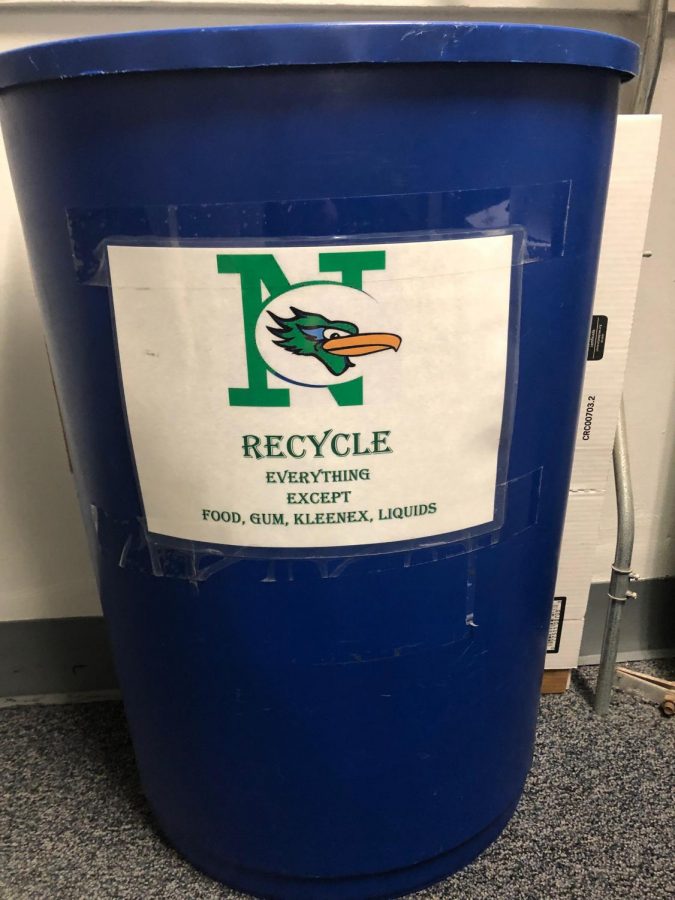Ditch plastic to reduce pollution
Roadrunners chip in by recycling
October 1, 2019
According to Surfers Against Sewage, a grassroots environmental movement out of the UK, in 2016, a global population of more than 7 billion people produced 320 million tons of plastic. This number is set to double by 2034. They add that plastic pollution can now be found on every beach in the world and that scientists have even discovered microplastics embedded deep in the Arctic ice.
National Geographic reports, 91 percent of plastic isn’t recycled and that plastic takes over 400 years to degrade, and 8 million metric tons of it ends up in the oceans each year.
This global issue isn’t going unrecognized – some are taking measures to stop the amount of plastic suffocating the planet. For example, San Francisco International Airport recently banned plastic water bottles. The ban is the airport’s latest effort to become the world’s first zero-waste airport by 2021. This effort has other airports questioning if they should follow suit.
Not only airports have been banning plastic, officials have banned single-use plastics in the Mount Everest region. Many restaurants have stopped using plastic straws, opting for paper or metal. New York state, lawmakers have approved a state-wide plastic bag ban, which will go into effect in March of 2020. Similar bans are already in effect in California and Hawaii, as well as in over 32 countries.
The Announcer sat down with Mr. Kesic, who teaches Environmental Science. When asked what protecting the environment means to him, Kesic responded by saying, “It means a couple of things: sustainability and controlling pollution. It means a lot more than that, but basically keeping clean air and water. It means protecting the climate.”
Kesic stated, “I enjoy being in nature. I enjoy its beauty. I enjoy being a part of it.” However, he has seen the ill effects of plastic waste, “I’ve seen it poisoning our waterways. It has become a major problem. I’ve seen it get into our seafood. One fact to note is that Illinois is the first place in the country – maybe in the world – to ban microbeads after finding them in seafood. I think right now the biggest problem is plastic pollution in our oceans.”
How can we help stop this plastic pollution at Naz? On Friday, September 20th we had a Climate Action Day, organized by students in Mr. Kesic‘ s environmental science classes and members of the Nazareth faculty, which was a day “dedicated to raising awareness about the current state of the environment and educating students about ways in which we can take action to protect and care for God’s [creation].”
During homeroom, we watched a video in which Pope Francis called upon us to take action to save our deteriorating environment. The video showed children playing on a beach that was swamped with plastic. During activity period, there were several workshops focusing on issues regarding environment.
To senior Jenna Bishop, the issues of environmental awareness go deep. “Protecting the environment means, to me, things beyond surface level, such as trends. Trends are a good introduction, such as using metal straws to save the turtles, but more really needs to be done. To me it means not just stopping further damage, but fixing what has already been done and making sure it will never happen again.”

